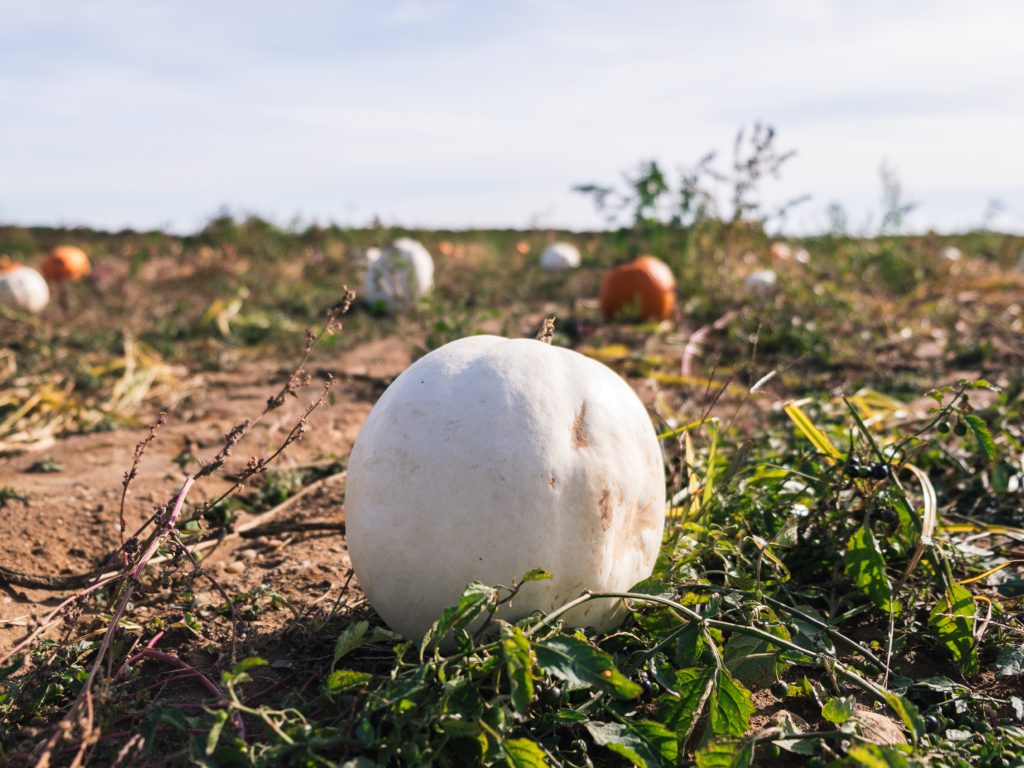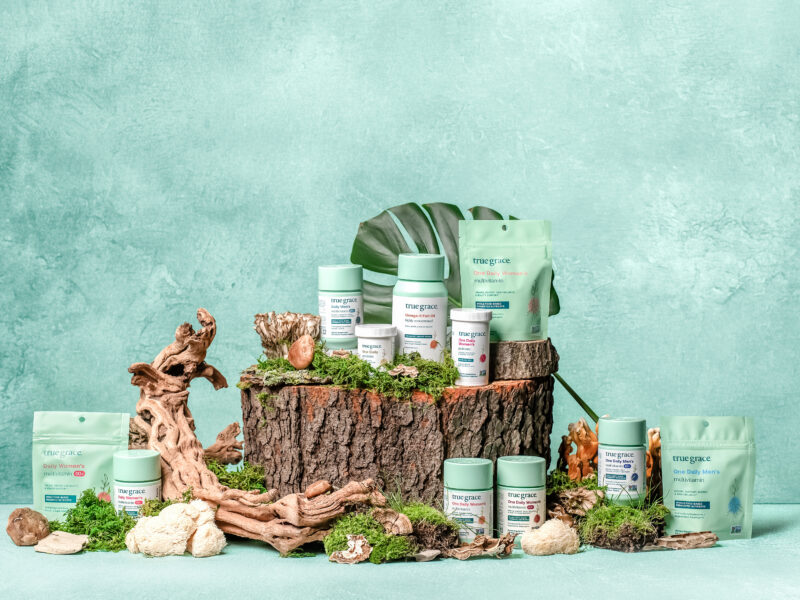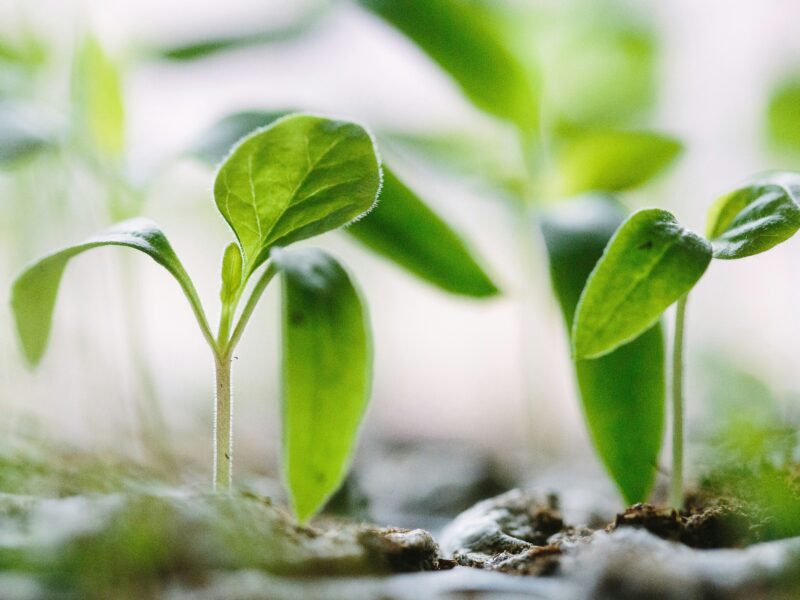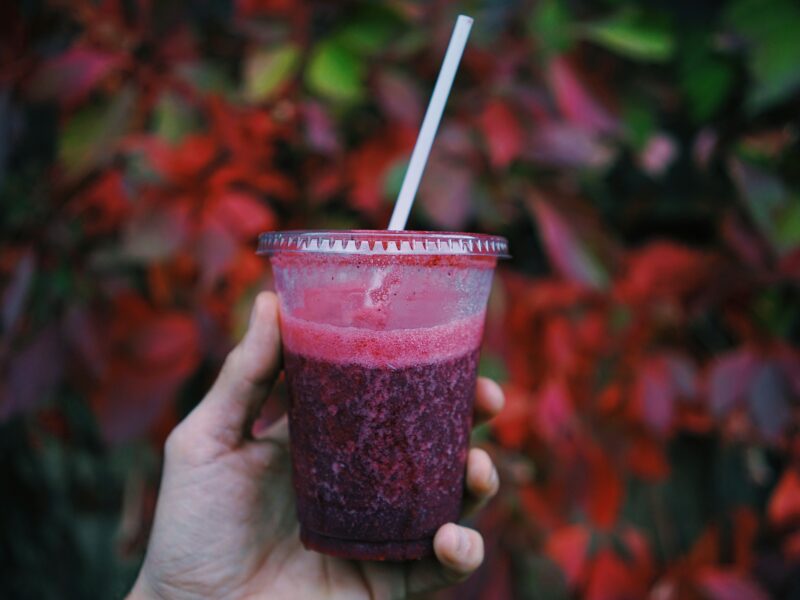You’re in the produce aisle at the store. You see two signs right next to each other: one for organic bananas and the other for nonorganic, or conventional, bananas. This might’ve led you to wonder about how organic foods are grown and what makes them different. Organic food is grown using a variety of strategies and techniques. Learning more about this process not only helps us out at the grocery store, but it can really open our minds up to new ideas about sustainable farming practices. The health benefits of organic, all-natural, and grass-fed farming abound. Items receive these food labels based on the way the product has been farmed. For example, the methods and techniques of organic farming are different than the farming of other kinds of foods for which consumers shop. The owner of Shrock Family Farms, Brandon Shrock, uses organic methods such as cover crops, crop rotation, and natural soil inputs. Continued growth and greater consumer choice is anticipated for tomorrow’s organic fresh produce sector, according to a survey from The Packer. Industry leaders responded to the question, “How is the organic sector different from five years ago, and what do you think it will look like five years from now?” Availability and volume of organic produce are bound to increase in the years ahead, said Steve Fisher, sales and marketing representative for Smart Group Traders Inc., Destin, Fla. Italy’s Organic food sales more than doubled in the past decade. The value of organic agricultural exports also rose by 181 percent in the same period. Wine led the way, but extra virgin olive oil was not far behind. The growing demand for organic food products is fueling Italian organic agricultural production. In the last 10 years, organic food sales in Italy have grown by 133 percent. Similarly, exports of Italian organic products have risen by 181 percent in value in the same period. Organic growers and marketers are facing the vice of higher input costs on one side and the desire to limit price increases for customers on the other. The Packer asked organic marketers about the industry’s biggest challenge right now, and the rising prices were one issue that several respondents mentioned. In a word, profitability is the biggest issue for organic growers and suppliers, said Brian Bocock, vice president of product management for Naturipe Farms.
Consumer choice for organic produce will continue to grow, marketers say
Continued growth and greater consumer choice is anticipated for tomorrow’s organic fresh produce sector, according to a survey from The Packer. Industry leaders responded to the question, “How is the organic sector different from five years ago, and what do you think it will look like five years from now?” Availability and volume of organic produce are bound to increase in the years ahead, said Steve Fisher, sales and marketing representative for Smart Group Traders Inc., Destin, Fla.
The Health benefits of organic, all-natural, and grass-fed farming abound
Items receive these food labels based on the way the product has been farmed. For example, the methods and techniques of organic farming are different than the farming other kinds of foods for which consumers shop. The owner of Shrock Family Farms, Brandon Shrock, uses organic methods such as cover crops, crop rotation, and natural soil inputs.
Italy’s Organic Food Sales More than Doubled in the Past Decade
The value of organic agricultural exports also rose by 181 percent in the same period. Wine led the way, but extra virgin olive oil was not far behind. The growing demand for organic food products is fueling Italian organic agricultural production. In the last 10 years, organic food sales in Italy have grown by 133 percent. Similarly, exports of Italian organic products have risen by 181 percent in value in the same period.
https://www.oliveoiltimes.com/business/italy-organic-food-sales-double/112760
Solutions for organic produce sector — Storage capacity, profitability, water, labor and others
Organic growers and marketers are facing the vice of higher input costs on one side and the desire to limit price increases for customers on the other. The Packer asked organic marketers about the industry’s biggest challenge right now, and the rising prices were one issue that several respondents mentioned. In a word, profitability is the biggest issue for organic growers and suppliers, said Brian Bocock, vice president of product management for Naturipe Farms.
How Is Organic Produce Grown? The Positive Impacts of Organic Farming
You’re in the produce aisle at the store. You see two signs right next to each other: one for organic bananas and the other for nonorganic, or conventional, bananas. This might’ve led you to wonder about how organic foods are grown and what makes them different. Organic food is grown using a variety of strategies and techniques. Learning more about this process not only helps us out at the grocery store, but it can really open our minds up to new ideas about sustainable farming practices.
https://www.greenmatters.com/small-changes/how-are-organic-foods-grown









